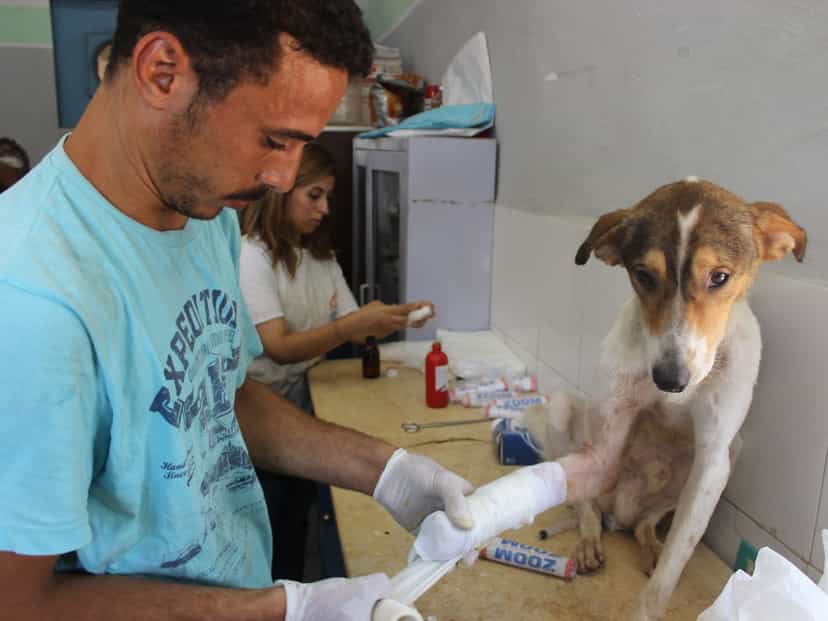
Is an adult dog a better bet than a puppy? Where do I adopt an adult dog from? What are the pros and cons of adopting an adult dog? In this article ex vet nurse and Franchisee for South Yorkshire Jane answers your questions.
Many people, when thinking of adding a dog to the family, automatically think of a puppy.
Whilst puppies are adorable, they are also hard work.
An older or adult dog can often be a better fit to the family.
The benefits of an older dog
- An older dog is likely to already be partly trained, especially house trained.
- This means that the dog can be left for periods of time.
- The dog will be past the chewing stage.
- You will see exactly how big the dog will grow, no sudden surprises.
- You will be aware of the character, personality of the dog and be able to find a “best fit” for you.
- You will be able to better match activity levels, even within specific breeds this can vary greatly.
- If adopting from a rescue, there will be advice and back up help, post adoption.
- The dog is likely to be calmer and easier to settle into the home.
- If you already have a resident dog most rescues will allow meet and greets to see if they are compatible.
- An older dog may well be used to children, less jumpy and mouthy.
Things to consider about re-homing an adult dog.
Be honest with yourself about how active you are. So, you like the look of a Husky, but are you willing (and able) to walk 5-10 miles daily?
Even popular breeds like the Cockerpoo, a mix of a Cocker spaniel and a Poodle, both working breeds with high energy levels.
The cost of keeping the dog, food, toys, bed, vet bills, insurance, grooming. Make a list and do an honest budget.
Are you willing to put the effort in to carry on any training, should the dog have any issues? A rescue centre can often help with advice on this.

So now you have opted for an older dog, where do you get one from?
Rescue centres
These are an excellent choice, not all dogs are in rescue because they have behavioural issues. Dogs are surrendered for various reasons. For example bereavement, change in circumstance, not realising the commitment a dog brings, choosing the wrong breed/ energy level for the family, the dog becoming larger than expected, higher cost than expected.
Breed specific rescues have a wealth of experience to help and support you making the correct decision.
Health checks will have been carried out on the dog, and usually the dog will be vaccinated, wormed and neutered (if old enough) or come with a voucher for neutering.
A rescue will be able to match your needs to the character of available dogs, or you can be placed on a waiting list for when a perfect match arrives.
Breeders
Good breeders will have a contract to return the dog to them should circumstances change. The breeding, health checks and history of the dog will be known.
Stray kennels
Dogs that are found straying are put up for adoption, after 7 days if they are not claimed by the owners.
No history of the dogs will be available.
Private re-homing
Re-homing a dog directly can have benefits but also pitfalls. You will be able to speak directly to the previous owner and learn about the dog’s history.
There is unlikely to be ongoing support.

So, you have found your perfect match it's time to welcome the dog home.
- Before the day get a few things ready, bed, collar and lead, food and water bowls, food, toys.
- Check your garden to make sure it is secure.
- On the day, bring the dog into the garden and allow him/her to sniff around. This will build a picture in his/her head as dogs “see” things as much by scent as they do by sight.
- Give them space to explore, this will allow them to relax.
- Offer a small meal, do not worry if they are reluctant to eat.
- Do not rush into a routine straight away. Allow a day or so before taking on extended walks etc.
- If you already have a resident dog and you have had meet and greets, take them for a short walk together, then introduce in the garden, both on long lines is best.
- Remove any conflict items, toys, treats, until you can establish all is okay.
- Feed in separate areas and observe until they are relaxed in each other’s company.
- Make sure that the resident dog gets as much attention as the new one.
Lastly, Enjoy your new best friend. Take comfort that you have given a dog a second chance. Older dogs give so much back in love, loyalty, and companionship.


